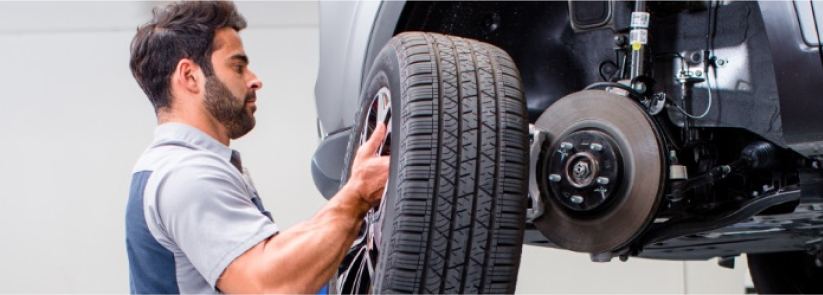Tire Tracks Morris IL: Quality Tires and Solutions
The Link Between Tire Solution and Fuel Efficiency
Among the different factors that influence gas efficiency, tire solution stands out as an essential aspect that often goes ignored. The intricate connection in between tire maintenance and fuel economic climate is a testimony to the elaborate functions of a vehicle.
Significance of Correct Tire Inflation
Appropriate tire rising cost of living is a critical element in taking full advantage of gas efficiency and making sure ideal automobile efficiency. When tires are underinflated, it creates a lot more moving resistance, creating the engine to function more difficult and shed even more gas to keep the very same rate. On the other hand, overinflated tires can result in a harsher trip, unequal tire wear, and minimized grip. To locate the advised tire stress for your vehicle, refer to the owner's manual or the sticker located on the driver's side door jamb.
Preserving the correct tire stress not only improves gas performance however also boosts driving security. Frequently checking and adjusting tire stress, specifically in the past lengthy trips, is a simple yet effective method to enhance your car's fuel economic climate and ensure a smooth driving experience.
Influence of Tire Footstep Deepness
Keeping the suggested tire stress is important for optimum car efficiency and gas efficiency; in a similar way, the tread depth of your tires plays a critical function in ensuring security and grip on the road. Tire walk deepness straight impacts the capability of your tires to grasp the road surface area, especially in wet or unsafe problems. As tires wear down, their walk deepness decreases, influencing their ability to network water away and maintain appropriate call with the road. The recommended minimum walk deepness is typically 2/32 of an inch, but for improved security and efficiency, several experts suggest changing tires before they reach this point. Appropriate walk deepness not just makes certain far better handling and braking but also contributes to fuel effectiveness by reducing rolling resistance. On a regular basis inspecting your tire walk deepness and changing tires when required is a straightforward yet effective way to promote both safety and security and fuel effectiveness when traveling.
Function of Wheel Positioning in Efficiency
Making certain exact wheel alignment is vital for optimizing lorry performance and making best use of gas economic climate. Proper go to website wheel placement entails changing the angles of the wheels to producer specifications, ensuring that they are alongside each other and vertical to the ground. When wheels are misaligned, it can cause uneven tire wear, raised moving resistance, and reduced gas effectiveness.

Furthermore, precise wheel positioning can also enhance dealing with and stability, reducing the amount of power required to steer the automobile (morris tire). By reducing unnecessary friction and drag, proper wheel alignment plays an essential role in improving overall vehicle performance and gas economic climate. Regular wheel placement checks and changes are essential for keeping ideal efficiency and making best use of fuel cost savings
Connection In Between Tire Maintenance and MPG
An important facet of maximizing fuel effectiveness in vehicles is the maintenance of tires and their straight influence on miles per gallon (MPG) Proper tire maintenance plays a critical role in maximizing gas economy. On the other hand, overinflated tires lower the contact patch with the road, leading to irregular wear and decreased gas performance.
Additionally, tire step depth likewise affects gas effectiveness. Damaged treads lower traction, specifically in wet conditions, compeling the engine to put in even more power to keep speed. This enhanced resistance cause greater gas visit homepage consumption. By guaranteeing tires have appropriate tread depth, motorists can boost both safety and fuel economy.
Essentially, appropriate tire maintenance, including surveillance tire stress and walk depth, is directly connected to accomplishing ideal MPG. By incorporating regular tire examinations and upkeep into a vehicle treatment regimen, chauffeurs can not only expand tire life however also boost gas effectiveness, ultimately conserving money and decreasing ecological effect.

Tips for Fuel-Efficient Tire Treatment
Given the essential connection in between tire maintenance and fuel performance, implementing reliable strategies for maximizing tire care is key to enhancing general lorry performance. To make certain fuel-efficient tire care, routine tire stress checks are important. Appropriately filled with air tires decrease rolling resistance, enhancing gas performance and extending tire life expectancy. In addition, keeping proper wheel alignment and balancing assists disperse weight equally, original site avoiding unequal tire wear and enhancing gas intake. Revolving tires at recommended intervals promotes also step wear, boosting fuel effectiveness by making sure all tires add equally to car performance. It is additionally crucial to check tires for indications of damages, such as cuts, slits, or protrudes, as these concerns can influence gas performance and total safety and security. Choosing tires with reduced moving resistance can substantially boost gas economic situation. By including these fuel-efficient tire treatment pointers right into a regular upkeep timetable, drivers can make best use of gas effectiveness, lower running expenses, and extend the life of their tires.
Final Thought
By frequently preserving tires and complying with fuel-efficient tire treatment pointers, vehicle drivers can optimize their car's efficiency and lower gas intake. It is important to prioritize tire maintenance to not just conserve cash on gas prices yet also to promote general vehicle performance.